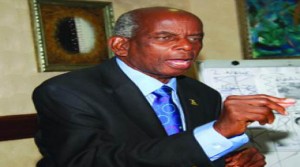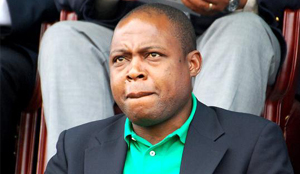By STEPHEN KAPAMBWE –
THIS is the universal story of the underdog, forever underestimated, but never discouraged to achieve the very best when challenged.
Akin to folklore of old, this is a recounting of the age-old message urging us to continue to fight against all the odds, to believe that dreams come true, to remain steadfast in our faith and to be uncompromising in order to reach the heights of success.
This is an epic sanctioned by divine decree that ensured nothing would stand in the way of pure intentions, hard work, determination and ultimately, destiny.
This is the emotional and now legendary football journey of an African nation, spanning five decades.
This is the path taken by a country bound together by a tragedy that shook the nation, which then spurred them to honour their fallen heroes by playing the beautiful game at the highest level.
This is the recounting of Zambia’s rich football history, derailed by the tragic plane crash off the coast of Gabon in 1993, only to be triumphant in the same country at the momentous AFCON 2012 tournament.
This is the opportunity to record and share this amazing story with the world.
This is the story of the unrelenting and victorious Chipolopolo.
The above description is what Purple Tembo Media has posted on the official website of the football documentary ei8hteam that has captured the story of Zambia’s first ever winning of the African Cup of Nations (Afcon) trophy in 2012.
And those yearning to have a feel of the must-see film can see it at Levy Park’s FreshView cinema in Lusaka from Christmas eve on 24th December, 2014 to New Year’s Day in 2015.
The ‘universal story of the underdog’, as it has been referred to, is an emotional Spanish-Zambian collaboration, written and directed by Juan Rodriguez-Bris of OmnicorpEstudioand co-produced with Zambia’s exciting film maker Ngosa Chungu.
The film is a gripping account of the path Zambia has walked to achieve total victory at continental football level, having lost an entire soccer team in a tragic plane crash off the cost of Gabon in 1993.
But to fully recreate the events that led to the crash and eventually to 2012 when Zambia lifted the AFCON trophy, Ngosa and Juan had to go back to events that shocked the global soccer fraternity at the Seoul Olympics in 1988.
Zambia encountered three-time FIFA World Cup winners Italy in a game which the KalushaByalya led Chipolopolo won by an unbelievable 4-1.
The world was stunned as Italy was reduced to tears by an African team no one knew anything about.
“We were not conversant with the type of football they played.We hardly touched the ball.It was like the wrath of God,” an unidentified Italian player who was part of the defeat is quoted in the documentary.
Ngosa believes Zambia’s victory against Italy demonstrated to the world the pedigree of the national soccer team which was lost in 1993.
However, although the Italians suffered a dreadful defeat at the hands of Zambia at the Seoul Olympics then, they were perhaps the only country in the world that identified with the Gabon air disaster having themselves lost a legendary soccer team in similar circumstances in 1949.
The Superga air disaster, which occurred on May 4, 1949 cost Italy some of the best soccer players the country had ever produced.
The plane crash happened when the Fiat G.212 of Aviolinee Italiane (Italian Airlines) carrying the entire Torino football team (popularly known as II Grade Torino crashed into the retaining wall at the back of the Basilica of Superga which stands on the hill of Turin.
There were 31 fatalities.
Historical records say the emotional impact the crash made on Italian sports fans was profound as it claimed the lives of the players of a legendary team.
Like in the Zambian scenario where the country had to rebuild a new soccer team from the scratch, the Italian disaster also seriously weakened Italy’s national soccer team.
Ei8hteam, which was produced at a cost of $40,000, pieces together the AFCON 2012 story from interviews with Football Association of Zambia (FAZ) Bwalya, late soccer commentator Dennis Liwewe, former Chipolopolo coaches Roald Poulsen and HarveRenard, and a host of other sources that have in one way or another made Zambian soccer what it is today.
“And so to lose that team in such a way was really tragic for us because football was the main ambassador for us at the time and we were also attached to it.
After the crash, we see how the team was rebuilt for the AFCON in 1994 and how we made it to the final because we knew how much the country needed to be uplifted,” Ngosa said.
She said KalushaBwalya, who was by then a coach, and later on FAZ president, instituted a plan to build up a team that would one day do what the 1993 team could not and what he could not do with the newly built 1994 team.
By 2012, the Chipolopolowere primed and were able to take the opportunity that was presented to them.
Ngosa worked with a production team that had to fly to Zambia, South Africa and around Europe although they could not travel to Gabon because of financial constraints.
At some point, the production team had to follow the national soccer team to South Africa in order to interview the players when they were all together.
They also had to virtually hunt for footage of the buffalo plane in which the soccer team perished in 1993.
That footage was only found in Australia.
The extensive travelling the production team had to do was one of the things that made the film costly to produce.
But the lack of financing, though serious and limiting, did not discourage the production team from achieving their objective even though it meant Ngosa had to find a way of funding the production.
The film has been officially given the green light by FAZ.
People that have seen the film have nothing but praise for 32-year-old Ngosa.
“I don’t think I have seen or experienced a movie like this in my life, even when I was once an actor. Congratulations, this will forever stay in my memory and in all the memories of the Zambian people. I am very glad to have taken that step in my life to come to Zambia. It was the luck of my life,” said former Chipolopolo coach Renard who helped Zambia lift the 2014 AFCON trophy.
“So far, people in Zambia have seen it from all backgrounds. Multiple Swedish delegations have seen the film and also people in Spain have seen it and everyone has reacted in the same way, that Zambian s are a great people and after such a tragedy how they were able to pick themselves up in the same place where they lost so much, it’s amazing. And it is a beautiful, beautiful story that transcends football even if you are not a football fan,” Ngosa said.
She said even many non-football fans have watched eigh team, particularly women, and have admitted that although they had thought they would not enjoy it since it is about football, they have ended up feeling very moved because of the film’s human story. She said people were also surprised that a female film producer was behind such a powerful sports based production.
Having spent $40,000 on producing the film, Ngosa is now hoping to secure $120,000 for global rights to show the film cinematically around the world and then to put it on DVD and on television.
Ngosa believes local film producers have what it takes to make world class productions given the many stories that could be used to make great factual or fiction films.
She believes Zambia has a great culturethat could be used to generate film based stories on witchcraft, traditional ceremonies, or the country’s rich history especially when one regards the country’s role in shaping politics in Southern Africa and around the world.
“You know we talk of copper defining us in the 20th century, but actually if you go back in the 10th century, we were actually forging copper, making bangles and that sought of thing and we were trading with people as far as India.
“There are amazing stories that we could tell that have not been told yet and its best we start doing them now before Hollywood catches up and they start coming here and taking them from us and taking the money out rather than that money staying here,” she says.
Ngosa equally feels the sky is the limit for local female film makers.
She thinks that although female film producers may face challenges because people may not take them seriously,they should not give up.
She thinks female film producers should see opportunities to make change since there were as much opportunityfor women in the media as there were for men.
Ngosais the founder, chief executive officer and producer of purple Tembo Media.
The pint-sized film maker, who calls herself Ndhlovukazi or female elephant,holds a Bachelor of Arts Degree in communication with a focus in technology and society, and an interest in journalism from Stanford University.
She also has a double master’s degree in global media and communications, comprising an MSc from the London School of Economics, with a focus in mobile technology, development and representation of non-Western stories in the media.
She also has a master of arts from the University of Southern California, with a focus in branding and social media.
Ngosa’s master’s theses focused on African representation in Hollywood film and African and Western audience interpretations of the themes, people, and places portrayed.
Ngosa has worked in Silicon Valley doing public relations for SanDisk and as an account executive for Nokia products at Starcom in Lusaka.
She worked for the African Leadership Academy as a Case Study Writer and Researcher, helping the Academy set-up its Leadership, Entrepreneurship and African Studies curriculum in time for the school’s opening in 2008.
She returned to Zambia in March 2011 to research the media market and subsequently create Purple Tembo Media.
While studying for her master’s in London, she interned at the BBC’s flagship interview show Hard talk, shadowing the editor and producers of the show and researching show topics and interviewees.
Ngosa also interned at Terry Hines and Associates, a Hollywood publicity firmduring her studies for her master’s in the USA.
She helped with social media campaigns and worked logistics at premieres and events related to the films being promoted.
After her double masters, she interned at the Global Fund to fight AIDS, tuberculosis and malaria (Geneva, Switzerland) in their Internal Communications department.
She has since secured global rights to the telling of the 2012 AFCON story after she copyrighted material relating to Zambian football in the last 50 years.
This means she retains the copyright to any cinematography production relating to Zambian football in the last 50 years including details pertaining to the 2012 AFCON.








